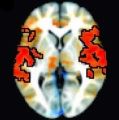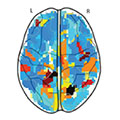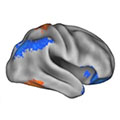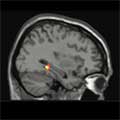Science Updates About Attention-Deficit/Hyperactivity Disorder (ADHD)
- NIH Researchers Identify Brain Connections Associated With ADHD in Youth
-
Researchers at the National Institutes of Health (NIH) have discovered that symptoms of attention-deficit/hyperactivity disorder (ADHD) are tied to atypical interactions between the brain’s frontal cortex and information processing centers deep in the brain.
- The Ups and Downs of Bipolar Disorder
-
• 75th Anniversary
Josh Santana shares his story of growing up with ADHD and bipolar disorder.
- Developing Rapid, Accurate Assessment of Mental Disorders, Suicide Risk in Youth
-
For many adults who have a mental disorder, symptoms were present—but often not recognized or addressed—in childhood and adolescence. Early treatment can help prevent more severe, lasting impairment or disability as a child grows up.
- NIH Study Reveals Differences in Brain Activity in Children with Anhedonia
-
Researchers have identified changes in brain connectivity and brain activity during rest and reward anticipation in children with anhedonia, a condition where people lose interest and pleasure in activities they used to enjoy.
- Understanding the Brain Mechanisms of Irritability in Youth
-
Researchers have identified differences in how the brains of irritable youth react to frustration, findings that could provide new paths for developing treatments for children and adolescents with severe irritability.
- Inflammation in Pregnant Moms Linked to Child’s Brain Development
-
High levels of maternal inflammation during pregnancy have been linked to effects in children, including reduced brain circuit communications and altered long-distance brain wiring at birth, poorer cognitive function at one year – and to reduced impulse control and working memory at two years.
- Estrogen Alters Memory Circuit Function in Women with Gene Variant
-
Brain scans reveal that fluctuations in estrogen can trigger atypical functioning in a key brain memory circuit in women with a common version of a gene. Since working memory function is often disturbed in mental disorders, such gene-hormone interactions are suspect mechanisms that may confer risk.
- Distractible Mice Offer Clues to Attention Deficit
-
A recent NIMH-funded study sheds new light on how the brain’s processing of sensory information, a key impairment in autism and ADHD, can affect higher level cognitive functions, such as attention and decision making.








